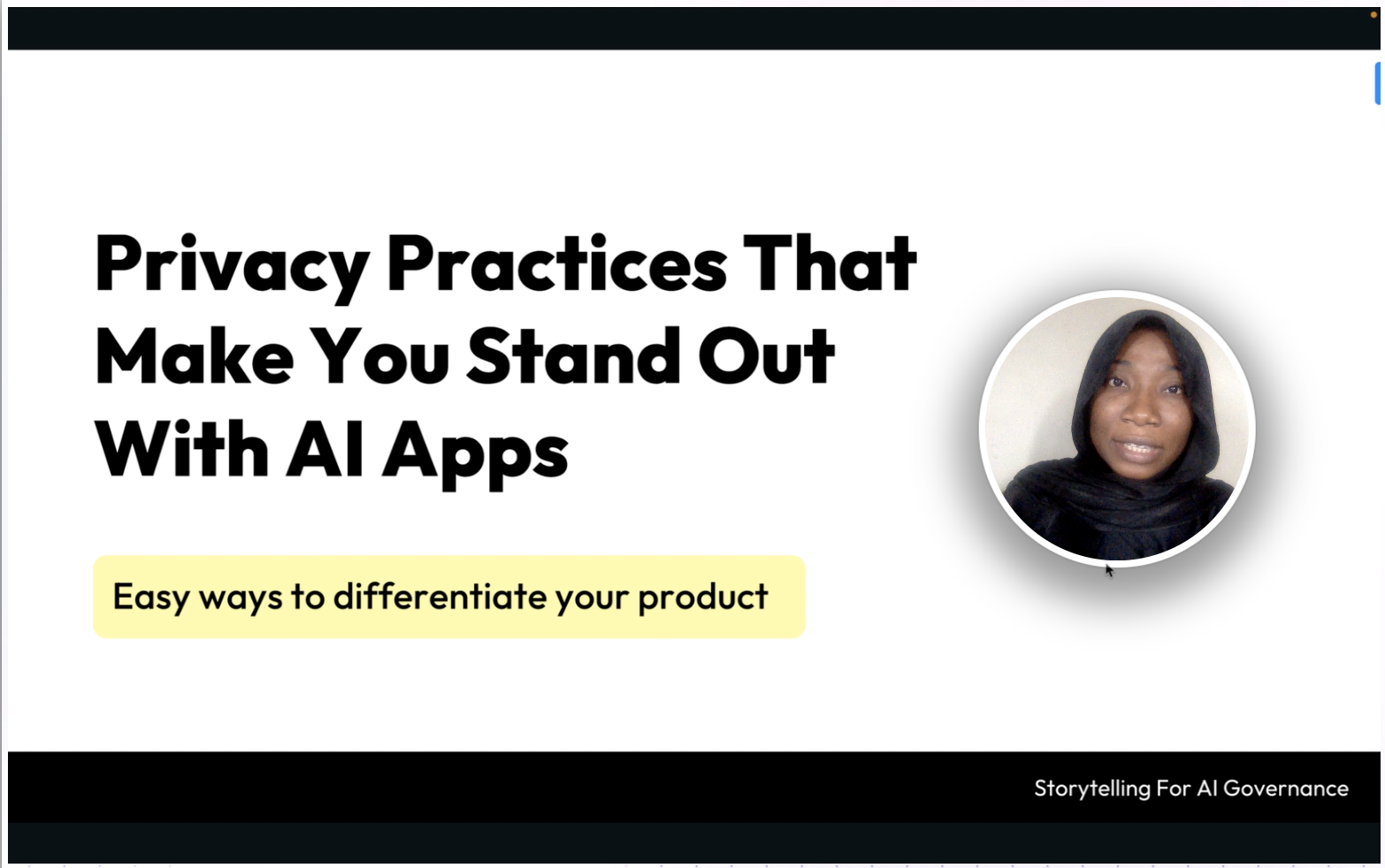Why Privacy Makes AI Apps Successful (Privacy Notices That Actually Work)
Privacy as a Competitive Advantage
Most companies aren't using privacy as a differentiator
With the rise of no-code tools, the market will become heavily saturated
Privacy practices can help you stand out and build trust with customers
Three Essential Privacy Practices
1. Make your privacy notice easy to find
Red flag: If users spend more than 5 minutes looking for your privacy notice
Privacy notices communicate what you'll do with user data
Real-world impact: Users of AI coaching, therapy, or productivity apps are conscious they're sharing sensitive information
If users can't easily find your privacy info, they'll go to competitors who satisfy their curiosity
2. Make your privacy notice easy to understand
Common problem: Lawyers write privacy notices filled with legalese
Use simple, accessible language for your consumer base
Key questions to answer clearly:
What data are you collecting?
Why are you collecting it?
Who will you share it with?
How will you delete it?
How can users control their data?
3. Practice data minimisation
Core principle: Don't collect more data than you need
User mindset: Assume consumers are suspicious and will question why you need so much data
Avoid "data grabs" - only collect what's necessary to fulfill your service
Always explain why you need the data you're collecting
